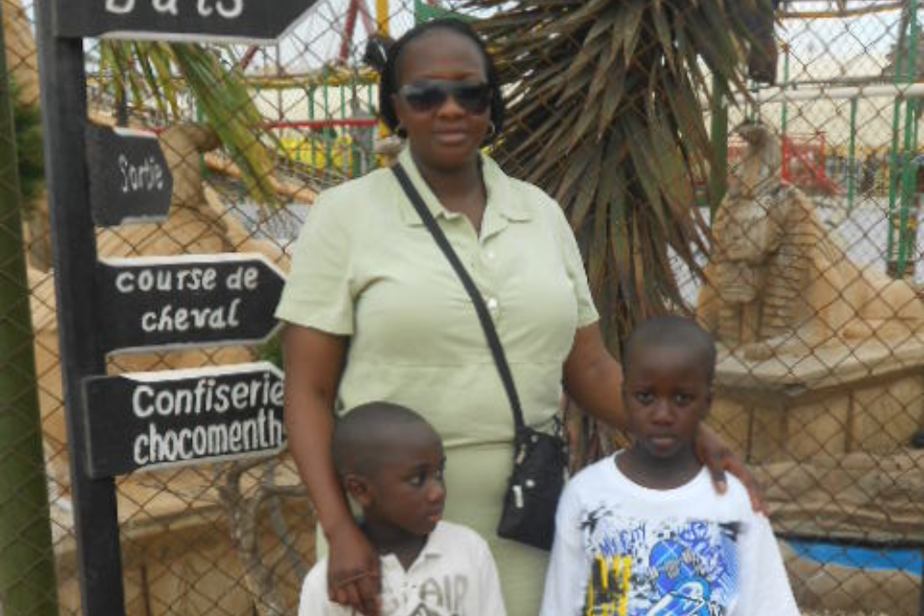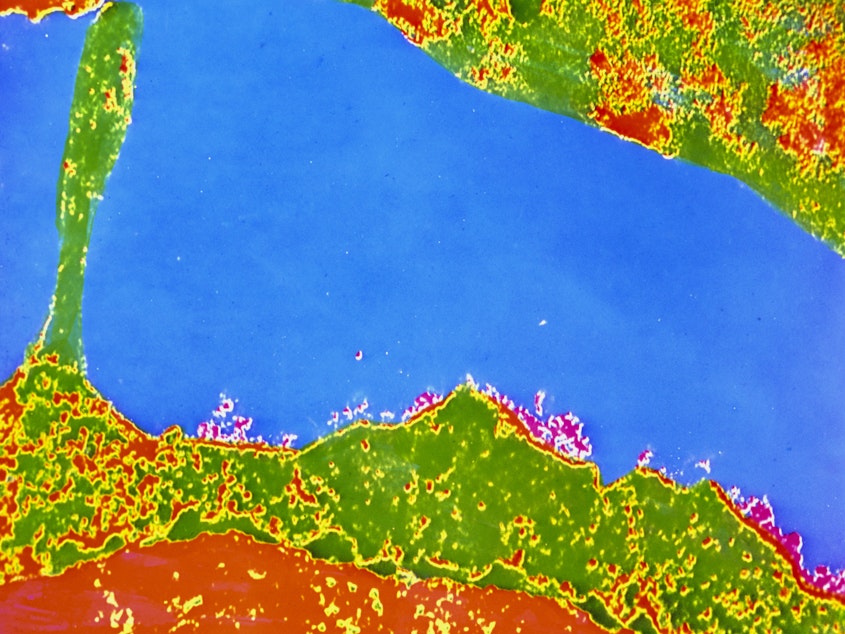Who is covering your local news? Today So Far

- What will happen to this small-town newspaper in Washington?
- Lake Forest Park creates "Octavia Butler Avenue" in honor of sci-fi author.
- Why you should prepare for harsh traffic in Seattle this weekend.
This post originally appeared in KUOW's Today So Far newsletter for July 21, 2023.
Quick hits
- Organizers, politicians predict ‘massive wave of enthusiasm’ will revive labor movement
- UW researcher says there's a simple way to help people addicted to fentanyl
- Washington's first case of potentially deadly fungus found in Pierce County
What will happen to the La Conner Weekly News? That question is part of a larger mystery about what will ultimately happen to local newspapers.
Northwest News Network's Jeanie Lindsay brings us this story. The La Conner Weekly News' publisher and editor Ken Stern is looking to retire. That means the future of this small-town newspaper is in limbo. Stern wants to sell it to someone who will keep it going. Otherwise, it could go the way that so many others have in our region. Lindsay notes that Washington state has lost about 20% of its local newspapers since 2004. Right now, there are a few more across the region looking to sell, or their owners have passed away.
I'm just going to be blunt about something (and my apologies to my news colleagues). Our region's major newspapers, which shall remain nameless, are not likely to send reporters to cover city hall in Issaquah, or Kent, or Bremerton, or Puyallup, or any of the small towns that add up to our Western Washington community. Here's another thing that I probably shouldn't say: The big news operations, they get a lot of their news from community newspapers, like the ones I used to work at. Without actual local reporters and newspapers, the big operations will have a little less to report, and you will be a little less informed. That local subscription holds a lot more value than you may realize.
Sponsored
This is not a condemnation of our region's news sources. They do great work. There are just a lot of communities and only so many reporters to go around. This is about how important local newspapers are as they disappear one by one. While a lot of eyes and ears are drawn to major TV and news websites, it's the local newspapers that are covering the information that impacts you directly. They let you know about what is happening down at city hall, at your kids' schools, about the taxes you have to pay, and other details. Check out the full story on this here.
At the end of this month, there will be an Octavia Butler Avenue in Lake Forest Park. You might wonder why this small town would dedicate a street to a sci-fi author, mostly known for her life in California. Turns out, Butler lived in Lake Forest Park in the latter years of her life.
After moving to the area in 1999, Butler told a neighbor that she had few requirements for a new home. She wanted access to the city, but she didn't want to live in it. She didn't drive, so she needed access to a bus, a grocery store, and a bookstore. That's it. This Seattle suburb seemed to fit the bill. It's where she wrote her final book, "Fledgling" (a novel about vampires in Washington state by an author who actually lived in Washington state). She passed away in 2006. Now, Lake Forest Park will join a handful of other places that honor her name (including a mountain on Pluto and a landing site on Mars). Read more here.
In case you're planning to go out and about around Seattle this weekend, maybe don't. Or at least, don't use your car.
The events happening in Seattle this weekend are pretty massive, starting with the two Taylor Swift concerts at Lumen Field. There are also Mariners' games, the Bite of Seattle, Capitol Hill Block Party, and more. And on top of all that, there are some pretty significant road closures. If there was a time to ever hop on the light rail, this is it. Read more here.
Sponsored
AS SEEN ON KUOW

A photo of Amadou Gaye (right), May Gueye (middle) and Idrissa Gaye (left) at an amusement park in Dakar, Senegal, in 2011. RadioActive’s Idrissa Gaye tells the story of his older brother. Amadou Gaye was the first member of his Senegalese family to be born in the United States. Growing up, his mom stressed the importance of prioritizing his education in the U.S. while maintaining a connection to his Senegalese heritage. For many first-generation Americans, it can be hard to balance multiple cultures. (Courtesy of Idrissa Gaye)
DID YOU KNOW?
There are a lot of trees to admire around Washington state — the Douglas fir, the ponderosa pine, the western larch, just to name a few. But only one native tree has the honor of being Washington's official state tree: the western hemlock. This tree can get up to 80 feet tall, and branch out to about 20 feet.
Sponsored
According to the state, the whole idea for this state tree was spurred by a little teasing from an Oregon newspaper in 1946. The Portland Oregonian suggested its Northwest neighbor adopt the western hemlock at its state tree, but locals weren't going to let some south-of-the-river hooligans tell them what to choose. Washington's newspapers began speculating and a movement to make the western redcedar got started up. State Rep. George Adams of Mason County put a stop to that, however. Adams argued in the Legislature that the western hemlock was likely to become the "the backbone of this state's forest industry." His argument worked. His bill making the western hemlock the official state tree of Washington passed in 1947.
ALSO ON OUR MINDS

You know those folks who had Covid but no symptoms? A new study offers an explanation
Do you know someone who tested positive for Covid but never felt a darn thing? Or who say they never caught the virus – even when their partner was sick in bed.

